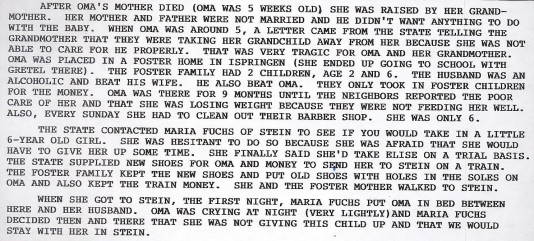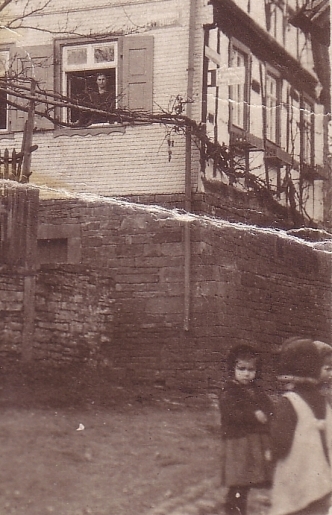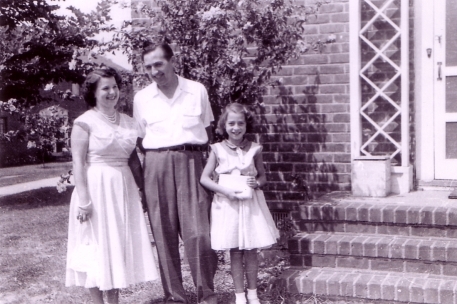So much of our history is recorded, remembered, and influenced by the views our male ancestors. But that’s only part of our story, and I am fascinated by the stories of our female ancestors. I have added a new blogging category called Women’s Words Wednesday where I will post and reflect on these important words that I have found in my research, in whatever form they arise (letter, photo, official document, etc.).
My Oma (“grandma” in German), Elise Gegenheimer, was born in 1919 in Ittersbach, Baden-Württemberg, Germany. Her mother, Louise Gegenheimer (age 22), was not marred and died from an infection contracted after childbirth, when her daughter was only 5 weeks old. I had heard bits and pieces of her story as a child: I knew that she was raised by a foster family, but that’s about it. Many years ago, my mother was preserving old family pictures and records and typed up Oma’s story:

“After Oma’s mother died (Oma was 5 weeks old), she was raised by her grandmother. Her mother and father were not married and he didn’t want anything to do with the baby. When Oma was around 5, a letter came from the state telling the grandmother that they were taking her grandchild away from her because she was not able to care for her properly. That was very tragic for Oma and her grandmother. Oma was placed in a foster home in Ispringen (she ended up going to school with Gretel there). The foster family had 2 children, age 2 and 6. The husband was an alcoholic and beat his wife. He also beat Oma. They only took in foster children for the money. Oma was there for 9 months until the neighbors reported the poor care of her and that she was losing weight because they were not feeding her well. Also, every Sunday she had to clean out their barber shop. She was only 6.
The state contacted Maria Fuchs of Stein to see if you would take in a little 6-year old girl. She was hesitant to do so because she was afraid that she would have to give her up some time. She finally said she’d take Elise on a trial basis. The state supplied new shoes for Oma and money to send her to Stein on a train. The foster family kept the new shoes and put old shoes with holes in the soles on Oma and also kept the train money. She and the foster mother walked to Stein.
When she got to Stein, the first night, Maria Fuchs put Oma in bed between her and her husband. Oma was crying at night (very lightly) and Maria Fuchs decided then and there that she was not giving this child up and that she would stay with her in Stein.”

The story of my grandmother, as told by her daughter, is an important part of our family history. These words show the upheaval of changes in living situations, the dangerous and heartbreaking year with the foster family, and the eventual placement with Maria Fuchs. We are still connected with the Fuchs family in Germany. They were my grandmother’s family – and are our family today. And my mother still stays in touch with Oma’s biological mother’s family. I can’t imagine how hard this must have been for Oma’s grandmother, having lost her daughter, to then have to give up her granddaughter (I don’t know too much about the reason why they felt that she was unable to care for Oma).

As hard as it is to read these words about my beloved Oma’s origin, I am thankful that I have a better understanding of where she came from. And I am so thankful for Maria Fuchs, and her willingness to say “yes” when asked to take in little Elise Gegenheimer. Because of her, Oma grew up healthy, married Adolf, had my mother, moved to America, and lived to be 91 years old.

© 2018 LAURA CUBBAGE-DRAPER. ALL RIGHTS RESERVED.
